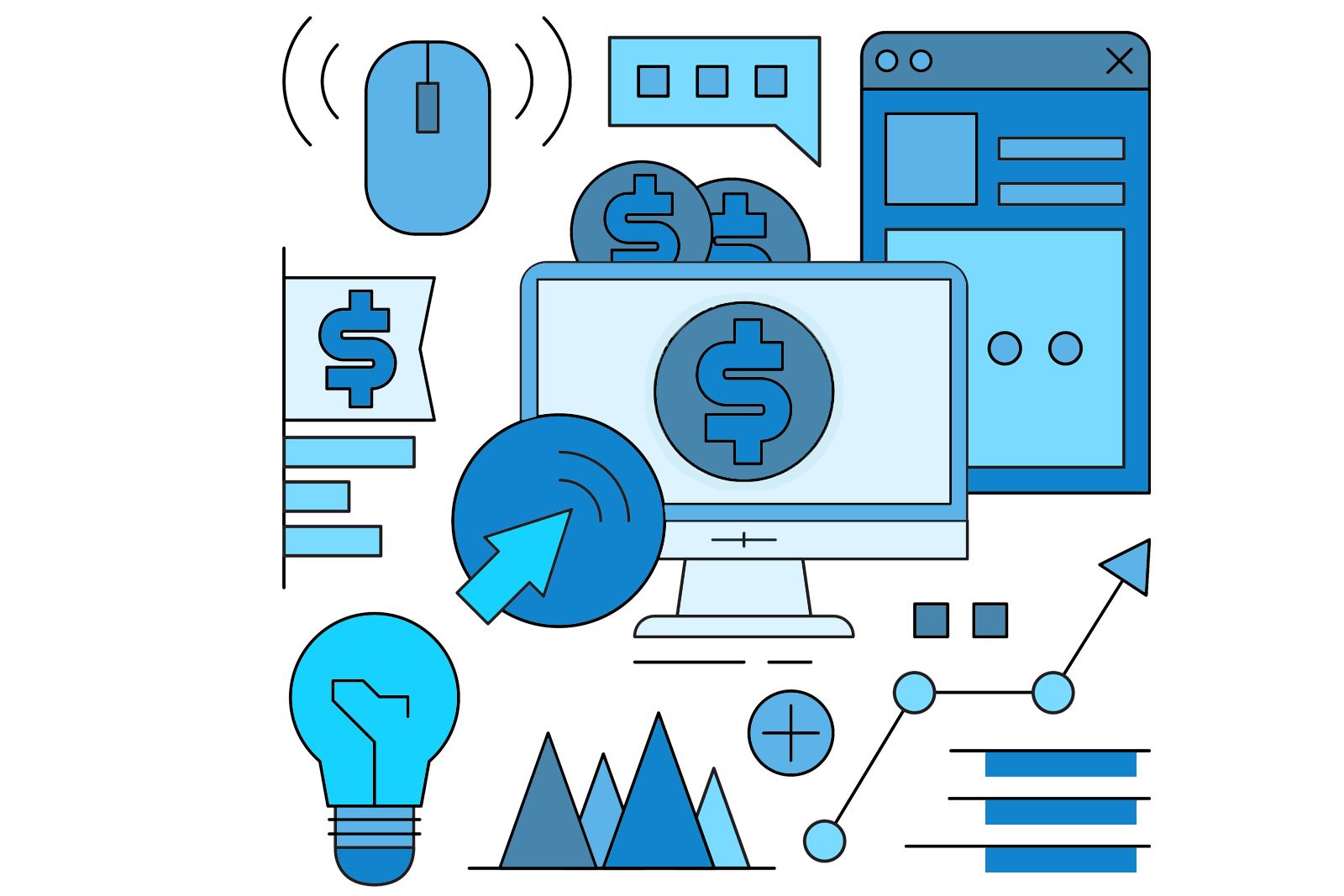ONLINE DATING
HIGH RISK MERCHANT ACCOUNTS FOR ONLINE DATING.
FASTER APPROVALS. COMPETITIVE PRICING. BETTER SERVICE.

HIGH RISK MERCHANT ACCOUNTS FOR ONLINE DATING.
FASTER APPROVALS. COMPETITIVE PRICING. BETTER SERVICE.
Online dating and mobile dating apps have gained popularity and acceptance in the digital age. DigiPay Solutions has created an “Online Dating Payment Processing Primer” with important information about setting up a merchant account, controlling chargebacks, managing risk and keeping merchant accounts in good standing.
DigiPay Solutions is a recognized payment processing brand among leading online dating service providers. The company’s extensive network of partner banks, payment experts and elite portfolio of tailored solutions has helped launch entrepreneurial start-ups and take enterprise organizations to the next level of corporate growth.
Thousands of merchants, from start-ups to enterprise-scale organizations, leverage DigiPay’s curated knowledge of high-risk payments to securely process hundreds of millions across an array of vertical industries. DigiPay works closely with online dating service partners, providing tailored solutions and timely advice to national and regional service providers, while helping them maintain the highest standards of banking and payment card industry compliance.
DigiPay’s team of experts, combined with our partners’ proven record of successful online dating services, can facilitate successful new company launches and help existing businesses grow and scale.
Online dating is a $2-billion-dollar industry in the United States, expanding at a rate of 5 percent year-over-year between 2010 and 2015. The industry’s rapid growth has led to consolidation among market leaders, most recently with Match Group’s acquisition of IAC/InterActive Group. Match Group’s extended family of online dating apps includes OkCupid, Tinder and Match.com. The company, valued at $2.3 billion, went public in November 2016.
A 2015 study by Pew Research Center found 15 percent of Americans have used online dating, 41 percent know someone who uses online dating, and 29 percent know someone whose online dating experience culminated in marriage or a long-term partnership. Research associates
interviewed 2,001 adults, 18 years of age or older, living in all 50 U.S. states between June 10, 2015 and July 12, 2015, among a national sample and the District of Columbia.
Online dating consultants and service providers are categorized by SIC Code, NAICS Code and Visa Merchant Category Code (MCC) to comply with payment card industry requirements.
Proper classification is vitally important to prevent funds from being held in reserve for misrepresentation. The online dating industry has a specific SIC code, is grouped under “All Other Personal Services” in NAICS. or MCC codes, and can be classified according to the nature and focus of services.
Following are some examples:

Top performing online dating service companies have impressively scaled their organizations by creating a comfortable and safe environment for people to browse personality profiles and look for someone with similar beliefs, interests and tastes.
Here are a few leading companies in the space:
Established in 1997 by Dr. Neil Clark Warren, eHarmony is an online dating site that uses algorithms to match people with optimally compatible partners, by identifying key areas and personality traits. The subscription site averages more than 4 million unique visitors per month, according to Forbes Magazine.
Launched in April 1995, Match.com was one of the original online dating sites and has grown both organically and through acquisition, expanding its global footprint to 24 countries and territories and hosting websites in 15 different languages. Company representatives say Match.com creates romantic opportunities for single people. Over the years, the company has improved its machine learning and designed intelligent tools to optimize results. In addition to its signature Match.com website, the company owns the OkCupid and Tinder brands.
Tinder, a subsidiary of Match.com, began as a mobile app and will soon introduce an online version, due to popular demand. The service is popular with millennials, who can rapidly swipe across potential partner portraits on their smartphones. Tinder blogged, “For all those who’ve ever been stuck in a lecture hall or had to endure an eight-hour workday without access to Tinder – this is for you.”
With your great brand story and DigiPay Solutions as your processing partner, there’s no limit to how far you can scale your company. DigiPay’s diverse, extended family of online dating professionals process anywhere from $20,000 to millions in monthly revenue.

Interested in learning more about Online Dating Publicly Traded Companies on Major U.S. Exchanges? Use this link to view by Large-Cap Stocks, Mid-Cap Stocks and Small-Cap Stocks.
The online dating industry provides a safe, secure way for people to search for love and companionship. Approximately 58 percent of college graduates know someone who uses online dating, and 46 percent know someone who has found a lifetime mate through an online dating service, according to a 2015 study by Pew Research. Online dating statistics trend higher among college graduates and affluent Americans, Pew researchers found. For example, only 25 percent of high school graduates use an online dating service, and only 18 percent know someone who found a suitable companion on an online dating site.

Online dating sites: Online dating sites offer different levels of service to address the needs of casual browsers and committed searchers. Some offer free and premium levels of service, while others provide different levels of subscriptions. Subscription rates can range between $25 and $200 per month, depending on level of service. Some, like SinglesNet, bill male subscribers a monthly fee and offer free subscriptions to women.
Mobile Apps: Advances in smartphone technology and wireless networks has helped mobile dating gain acceptance and popularity around the world. Some apps leverage Near Field Communication (NFC) technology to alert users when prospective partners are in proximity. Others use Bluetooth technology to help users find each other in bars and nightclubs. Some experts believe the ease of use is the largest contributor to the worldwide mobile dating app explosion.
Opinions about online dating and mobile dating, sometimes called Cyber Dating, are mixed, especially among men and women, researchers have found. While most men and women have posted positive reviews about the service and their personal experiences, many have voiced a fear of the unknown. Approximately 53 percent of women have concerns about meeting a stranger, even if the individual has been fully vetted and screened by the online dating service. Some find the persona of a person can vary sharply from an online site to an in-person meeting.
Pew Research received the following positive feedback in a 2015 survey:
li>61 percent agree that online dating is an easy, efficient method of meeting people.
Pew Research received the following negative comments from its 2015 survey:
Despite diverse opinions, people who use online dating and mobile dating apps generally have more positive opinions than those who do not personally use the services, Pew researchers found.
The first step in enabling commerce is to establish a merchant account. Online dating is classified as high-risk, making industry service providers ineligible for merchant accounts at numerous sponsoring banks. DigiPay’s expanded network of banking relationships accepts the online dating business category and provides competitive rates, terms and conditions.
Online dating companies find it advantageous to work with processing partners who are familiar with their industry, jargon and common business practices. Payment processing sales representatives who are not familiar with online dating lingo and practices may be less effective at managing relationships, due to their learning curves. When online dating companies work with knowledgeable processing partners, they can save time and money, improve efficiencies and attract and retain more customers and followers.

Many banks will not accept online dating merchants due to the industry’s higher-than-average number of chargebacks. An entrepreneurial start-up company, that has created a mobile app or online dating site, may not anticipate the risks involved in working with consumers whose sometimes unrealistic expectations about finding a perfect relationship can increase the likelihood that they initiate a chargeback or default on a recurring subscription payment due to personal disappointment or inability to pay.
Here are some risks commonly associated with professional online dating:
Consumers who opt in to a repayment plan with automatic monthly payments may forget that their credit card will automatically be billed every month. They will then dispute the charge that appears on their credit card statement. Many card issuing banks require consumers to contact the merchant before they process a chargeback request.
Consumers who do not receive the results they expected from online dating may initiate a chargeback. They do not even have to prove the company made an exaggerated claim. They only need to demonstrate that an online dating company promised results they did not receive to win a dispute. Regulatory compliance regarding financial solvency and truth-in-advertising creates additional exposure for online dating service providers.
Online dating start-ups in the early stages of setting up their businesses may not have the appropriate levels of customer service support to deal with consumer complaints and inquiries. Consumers who are unable to communicate their concerns to merchants are at increased risk of turning to payment card issuers for refunds and chargebacks.
Yes, at DigiPay online dating is in our DNA. Our financial services specialists are familiar with the industry’s unique framework and diversified categories, business models, SIC and NAIC codes and VISA MCC. We underwrite our merchants before sending their applications to our sponsor bank.
Once new merchants establish credibility and trust with DigiPay banking partners, they receive personalized attention and ongoing risk management from DigiPay’s team of payment specialists. This personalized service, coupled with the sheer volume of transactions we process through multiple banks, ensures our merchants receive the highest level of service and support.
Choosing the right payment processing partner is critical, because without the ability to accept payments, merchants are out of business. DigiPay’s merchant onboarding process combines sophisticated technology with human oversight. Experienced underwriters who understand the online dating industry, and have expertise in payment card brand and banking industry compliance, bring a refreshingly holistic approach to new account set-ups.
Whether an online dating business is a subscription service, interactive website or mobile app, DigiPay Solutions will give every merchant the attention and resources they deserve and a one-stop shop for processing solutions. The online dating industry is growing and DigiPay can accelerate that growth. The first order of business is eliminating any barriers to progress. Look no further than DigiPay Solutions, where getting a merchant account will open doors to a bright and prosperous future.
Because of the higher risk associated with online dating, more due diligence is required during the new merchant onboarding process. This means underwriters need to review a range of documents to assure the business is compliant, financially sound, and a good credit risk. DigiPay is unique because we underwrite merchants in-house before we submit their applications to the bank. Because our team of underwriters is experienced in high-risk, your business is presented to the bank with all required documents and full disclosure, to engender trust and stability.
Presenting your business in the best possible light from point of first contact is important because merchant accounts are essentially a line of credit from a processor. Because high-risk merchants have higher chargeback ratios and regulatory exposure, financial institutions are concerned they may violate card brand rules, laws and regulations. Complaints to the FDA and the FTC against a merchant create liability not only for merchants, but can also hold processors accountable under Know Your Customer (KYC) regulations.
DigiPay’s in-house team of underwriters and risk managers have curated knowledge in all areas of high risk. We are best qualified to guide you through the process efficiently and painlessly while helping to present your business to increase approval and gain credibility.

Once a high-risk online dating merchant account is approved, payment processors set monthly processing limits, typically between $10,000 and $30,000 per month, for the first three-to-six-months. This gives processors time to develop a customer risk profile by evaluating payment flows, average ticket sizes, processing levels and chargeback ratios.
Online dating companies that maintain a stable, consistent performance throughout their initial trial periods can usually increase their processing limits. DigiPay’s risk management team works with merchants and sponsoring banks to shorten trial periods and raise processing limits.
Maintaining a low chargeback ratio is key to maintaining a healthy merchant account. When chargebacks exceed card brand maximums, your merchant account is at risk of being shut down. If a merchant category has consistently excessive chargebacks, banks will sometimes shut down an entire vertical industry. For this reason, it is critical for high risk verticals to self-regulate and work collaboratively to establish industry best practices.
DigiPay brings a deep level of understanding and expertise when it comes to chargeback management. Keep reading for advice from our industry veterans.

Keeping track of your Transaction Chargeback Ratio as well as your Volume Chargeback Ratio is critical because this is what Visa, Mastercard and payment processors monitor. Payment processors with high chargeback ratios in their merchant portfolios can trigger unannounced audits by Visa or Mastercard. For this reason, DigiPay, powered by TranZlytics, closely monitors chargeback and refund ratios, reacting quickly to spikes in activity. Excessive refunds, frequently the result of alerts, can be a sign of fraud or poor business practices, information the card brands and banks may consider when assessing risk.
The formulas shown below use simple math to derive Transaction Chargeback, Volume Chargeback and Refund Ratios:
Add total monthly number of chargebacks and divide by total monthly number of transaction. For example – if during a month you processed 500 sales, and there were 10 chargebacks, your chargeback ratio would equal 10/500, or 2.00%.
Add total monthly dollar amount of all chargebacks and divide by the total monthly sales volume.
For example – if during a month, you processed 500k in sales, and your chargebacks were 10k, your chargeback ratio would equal 10/500, or 2.00%.
Add total monthly number of refunds and divide by total monthly number of transactions.
For example – if during a month you processed 500 sales, and there were 10 refunds, your refund ratio would equal 10/500, or 2.00%.
Add total monthly dollar amount of all refunds and divide by the total monthly sales volume.
For example – if during a month, you processed 500k in sales, and your refunds were 10k, your refund ratio would equal 10/500, or 2.00%.
It is important not to ignore chargebacks, because win/loss ratios matter. Visa and Mastercard can impose penalties and fines in the tens of thousands on payment processors and their sponsoring banks for continuing to process transactions for merchants that exceed the permissible 2 percent chargeback ratio. Non-compliant processors and banks may also be subjected to further scrutiny and potential shut-down by card brands and regulators.
Here are some recommended ways to maintain low chargeback and refund volume ratios:

Merchants can handle chargebacks in-house or outsource to a Chargeback Mitigation Specialist. The following companies are experienced in identifying all forms of fraud, including friendly fraud. They will investigate chargeback claims and retrieval requests on behalf of merchants:
*DigiPay Preferred Provider
Online dating service providers rely on ecommerce and Mail Order/Telephone Order (MOTO) sales to scale their businesses. Credit card payments transacted online or by phone are called Card Not Present (CNP) transactions. Online CNP transactions involve credit card gateways that transmit payments from merchants to their payment processors.
Following is a list of recommended attributes of payment gateways that address the unique requirements of online dating industries:
Many online dating companies need multiple merchant accounts to support their diversified array of programs. Gateways should ideally be able to manage multiple merchant I.D.s organized under one master MID relationship.
Payment gateways need to seamlessly integrate into CRMs, POS systems, third-party software, and ecommerce shopping carts to facilitate all forms of online, MOTO and in-store commerce.
Online dating and matchmaking merchants need access to a variety of real-time reports and transaction data to grow and scale their businesses and manage chargebacks and refunds.
In addition to enhanced reporting, online dating merchants need secure access to transaction data from anywhere they happen to be working, with built-in permission levels to facilitate all levels of employees and management.
Payment gateways must comply with the Payment Card Industry Data Security Standard (PCI DSS). Ask your gateway provider if they are PCI DSS compliant and verify their certificate annually. Online dating merchants also need a gateway with a data vault for tokenization of credit card numbers and encryption of customer personally identifiable information (PII). Tokenization replaces a Primary Account Number (PAN) with a randomly generated set of numbers and records this in the data vault. This is to prevent hackers from accessing customer data. By storing PII and PAN in a highly secure, offsite location merchants shift their liability to the gateway provider. Encryption and tokenization keep your customer’s information safe while allowing merchants access to the data for future transactions.
TranZlytics Gateway:
Choosing the right gateway provider is critical for high-risk merchants and their processors. DigiPay’s chosen gateway is TranZlytics. TranZlytics offers high risk merchants a Gateway and HUB built from the ground up for high-risk and CNP merchants. The solution includes transaction analytics and fraud prevention and built-in advanced chargeback management.
TranZlytics also offers advanced real-time reporting for faster and better use of CRM data.
Payment descriptors are registered with a Chargeback Alerts program; re-presentments are pre-integrated with the gateway.
With a single HUB for transaction management and expert risk management team to monitor your data, you can focus on what you do best, growing your business. Think of Tranzlytics as an online and mobile dating Payment HUB with the IQ of Einstein and the memory of an elephant.
Customer Relations Management (CRM) software is a basic requirement, both for large enterprises and small companies that want to scale and grow their businesses. These systems are designed to automate the lifecycle of product offerings and to facilitate payments. As with payment gateways, it is vitally important to validate the CRM is PCI DSS compliant if it is touching customer information. Unlike payment gateways, CRM’s are not rigorously monitored for PCI DSS compliance; a security breach can devastate your business and erode customer trust.
Below are examples of CRMs used by professional online dating entrepreneurs and enterprise-level service providers:
Konnektive is CRM of choice for a diversified array of dating companies. The CRM’s expanded solution suite shopping cart technology, logistics and fulfillment and call center integration. The platform also provides advanced reporting and analytics and PCI certification. Subscription prices vary.
Zoho, a generic and inexpensive CRM program provides tools for recurring billing, customer tracking, customer satisfaction emails and a customizable database. While the service is not specifically designed for the dating industry, it is affordable and supports multiple MIDs.
Limelight is the go-to CRM created “For Marketers, By Marketers”, for a large number of continuity, membership and subscription online dating businesses, as well as some straight sale dating. The reason it’s so popular is its integration with NMI and some robust call center integration. The biggest downside to LimeLight is that they’re expensive. Everything is done via a custom quote, but a online business can expect to pay at least $500 per month, plus a one-time setup fee. Whether or not that fits within your budget is obviously up to you, but it is probably worth doing an intro call just to see why so many online dating businesses end up choosing them
Google Sheets is a free service that provides a basic spreadsheet for start-ups. Its biggest asset is that it is free.
Online and mobile dating and matchmaking have become worldwide phenomena and DigiPay is excited to play a supporting role in their growth. Our extended family of online dating service provider merchants, with vastly different models and product sets, are equally committed to optimal results, performance metrics and profitability. Some offer subscription programs; others provide mobile apps. All want affordable and easy high-risk payment card processing, which is our specialty.
Mike Ackerman
Co-Founder, CEO, DigiPay Solutions

What is affiliate marketing? Affiliate marketing is a partnership between merchants and affiliated individuals and companies that sell for them on the internet. Companies of all sizes, from leading global brands to start-up entrepreneurs, use the affiliate marketing model to great advantage, finding it an effective and lucrative ecommerce strategy. For example, thousands of Amazon.com affiliates promote products on their websites, redirecting buyers to Amazon’s site where they can check out and complete the sale. These sales are tracked by unique URLs that enable affiliates to earn commissions.
Creating an effective affiliate marketing plan begins with identifying trusted and reputable affiliates with extensive networks and followers, retail analysts have noted. These sources can help introduce products and services to markets outside a company’s traditional marketing footprint. Some examples might be a blogger with thousands of followers, or an e-zine with a strong vertical industry focus.
Because affiliate marketers are ideally an extension of a company’s brand and salesforce, it is crucial for organizations to create an affiliate program with clearly articulated terms and conditions, leaving nothing to chance. Some companies may outsource most of their promotional efforts to affiliate marketers. Others may supplement their traditional salesforce with a few affiliate partners.
Companies need to consider their primary objectives and corporate culture when creating an affiliate marketing program. Companies that manage more than one sales force, such as telemarketers and outside sales, have learned to structure sales programs to ensure that different teams are not competing against each other. This principle is equally relevant when working with affiliate marketers, who have proven to be most effective when they are not in direct competition with internal sales teams.
Payment acceptance: Affiliate marketing takes place on the internet, where payment methods vary. Merchants that only accept traditional credit cards will miss the opportunity to scale their businesses globally, by not accepting the most popular payment methods of other countries. Partnering with a company that specializes in cross-border payments and understands the unique regulatory environments of different countries around the world, will solve this issue.
Establish dedicated URL links: Targeted, accurate URLs are directly tied to affiliate marketers’ commissions and need to directly link to landing pages and product codes. Companies need to work with IT specialists to accurately track and promptly commission affiliate sales.
Create a coupon program: Considering how many consumers search for coupons and offers online, doesn’t it make sense to create coupon programs that help affiliate partners attract prospective buyers? Discount codes are one of the biggest growth hacks on the internet and show no sign of slowing down.
Stay in touch with affiliate partners: Establishing deep ties with affiliate partners means notifying them in real-time of any changes in inventory, pricing models and promotions. No company can afford the embarrassment of having an affiliate learn of a discontinued item or clearance sale through a third party. As sales representatives on the front lines of selling a company’s products, affiliate marketers deserve real-time alerts to keep them agile and motivated.
KPIs, banners: Affiliate marketers, like any sales professionals, need to know their key performance indicators, not only to track their closing rates but to be inspired to reach even greater heights. While there are multiple ways to do this, establishing a secure portal where they can log in and view their activity, commission status and current promotions will help them stay on track and cut down on customer service calls.
Before you approve a new affiliate, your first step in preventing fraud is to fully vet them. Ask them about their current brand relationships and how they promote their products. Their responses will help you evaluate if their values and culture are consistent with your company’s image and brand. Ask how the affiliate will drive traffic & sales to your offer. Check to see if the affiliate has behaved fraudulently in other programs
To stay apace with ever-changing rules and regulations, it is necessary to periodically update your affiliate terms and conditions. Let your affiliates know how these updates will be broadcast and request confirmation. Be sure to include a due date for compliance to the new terms as well as an enforcement strategy.
Monitor for violations using technology and human intelligence. Consider contracting with third-party service providers that use technology to monitor websites, or build those capabilities in-house. Ideally, machine learning coupled with human intelligence is the best way to ensure compliance.
Yes, DigiPay powered by Tranzlytics provides high-risk merchants with Pro Managed Services to ensure compliance and to detect and prevent fraud. Tranzlytics fraud detection includes daily screen shots that identify changes to a website. In addition to monitoring for key word violations, Tranzlytics can monitor affiliates and sub-affiliates traffic to ensure compliance.
The adage, trust but verify, applies when monitoring affiliates. The following guidelines can help identify potential fraud:

Affiliate software: Unique applications developed by companies to track and manage their affiliate marketing programs.
Affiliate link: This distinct URL, created for each affiliate marketer, enables companies to recognize, track and pay commissions to affiliates.
Affiliate ID: These unique IDs are sometimes used in addition to unique URLs on websites to identify affiliate marketers and ensure that they are compensated for sales.
Payment Mode: Pertains to the method of payment used by a consumer to complete an affiliate-referred sale. Most affiliate programs offer payment methods beyond traditional credit cards to appeal to global consumers.
Affiliate Manager/OPM: Affiliate managers, who specialize in all aspects of affiliate marketing, provide expert guidance on establishing and maintaining affiliate programs.
Commission percentage/amount: This refers to the percentage of each sale that companies provide in commissions to their affiliate marketers.
2-tier, or multi-tier, affiliate marketing: Like multi-level marketing schemes, this method rewards affiliate partners for referrals and recommendations, creating a second tier of sub-affiliates who can also earn sub-affiliate commissions.
Landing pages: This web page is used to promote a specific product and is frequently used to test a market’s receptivity to a product or service.
Custom affiliate income/account: Some companies reward top-producing affiliates by creating an elite sales program with higher-tiered commissions.
Link clocking: Link clocking shortens affiliate-identifying links, keeping them short and easy on the eyes.
Custom coupons: Custom coupon programs, directly linked to specific affiliates, help companies track and analyze affiliate sales.
A growing number of companies are working with DigiPay and TranZlytics to optimize and grow their affiliate programs. Contact us today for a no-obligation review.

The following membership organizations and trade associations represent the interests of the online dating industry:
International Association of Dating Websites (IADW): IADW, based in San Rafael, Calif., is a not-for-profit organization that serves dating website owners and members. IADW co-sponsors singles events throughout the San Francisco Bay Area with The Society of Single Professionals, and is one of the world’s largest online dating trade associations. www.iadw.com.
Online Dating Association (ODA): The ODA, a U.K. trade association established in 2013, serves the needs of the online dating industry while working with members to standardize best practices and represent members’ interests in government and private sectors. “Online dating businesses serve the public when they are looking for new relationships, romance, love and the possibility of a new and lasting partnership,” ODA’s website states. http://www.onlinedatingassociation.org.uk/
Annual conferences and events provide online dating professionals with networking and educational opportunities. Here are some examples:
July 20-21, 2017: iDate Internet Dating Conference, Minsk. The popular business event for online dating industry stakeholders focuses on technology and business models for online dating, matchmaking and the social networking industry.
Digital Marketer: Comprehensive training and strategic digital marketing support for online dating companies
January 24-26, 2019: iDate Miami 2019, Miami, Florida: Come to the world’s largest industry expo for the online dating world! This conference will discuss payment methods, venture capital, background searches, and more. If you’re in the industry, be sure to attend this event for fantastic networking and learning opportunities!
For an up-to-date list of digital marketing conferences, visit this link.
| Name | Date | City | Venue |
|---|---|---|---|
| Affiliate Summit East | July 30-Aug. 1, 2017 | New York City, NY | New York Marriott Marquis |
| Content and Commerce Summit | Sept. 18-20, 2017 | Los Angeles, CA | JW Marriott Los Angeles L.A. LIVE |
| iDate Internet Dating Conference | Oct. 2-4, 2017: | London, England | Strand Palace Hotel |
| Affiliate Summit West | Jan. 7-9, 2018 | Las Vegas, NV | Paris Las Vegas Hotel |
| Traffic and Conversion Summit | February 26-28, 2018 | San Diego, CA | San Diego Marriott Marquis |
Thank you for taking the time to review this compendium to learn about available opportunities and solutions in the online dating industry. We look forward to welcoming you to our growing merchant community.
Our online application takes minutes to complete. Once approved, our relationship managers will help you personalize your business management portal and leverage our full complement of secure payment gateway and chargeback management tools. They’ll help provision your processing account, ecommerce website and POS systems in brick-and-mortar stores.
DigiPay will also make it easy for your customers to find you, by helping you create an engaging online and in-store presence and seamless customer checkout experience. Take your online dating business to the next level today at digipayinc.com.
